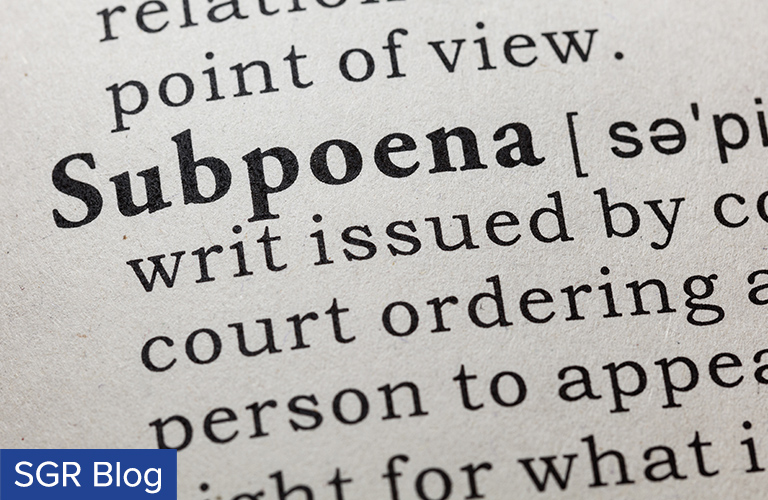
In today’s increasingly regulated business environment, it is not uncommon to interact with a multitude of state and government agencies as you report and they confirm that certain aspects of your business are in compliance with regulations, statutes, and administrative orders. While these sorts of standard interactions may seem rote, another, more jarring interaction with government is when you or your employees receive a subpoena, Civil Investigative Demand (CID), or other request for testimony or production of documents.
What is a subpoena or CID?
A subpoena is a legally enforceable order made by a court at the request of a party – including the government – that compels the recipient to produce documents, give testimonial evidence, or both, by some date in the not-too-distant future.
A CID is a type of subpoena, also enforceable in court, that seeks documents or other information related to a government investigation.
Do I have to comply?
Sticking your head in the sand and pretending the subpoena/CID doesn’t exist may seem like a good strategy when you first receive it, but that is definitely not the prudent course! The government can go to court to have a subpoena or CID enforced, something which can increase your costs and potential risks, so complying with the subpoena or CID promptly and reasonably is almost certainly in your best interest.
What is the first thing to do when I get a subpoena or CID?
Generally, it is a good idea to consult with an attorney who can help you work with the government to produce the documents and information it seeks. You or your attorney should call the government attorney listed on the subpoena/CID to clarify your understanding of each category of information sought and to discuss how your response will proceed in terms of timing and how the information will be produced to the government. At the initial stage, often the most important thing is to request an extension of time to respond to the subpoena.
Does this mean I’m under investigation?
Not necessarily. In conducting an investigation, the government seeks out information from all manner of parties, including third parties who have documents or information that relate to those who are the actual subjects of a government investigation. However, it is important to consult with an attorney about your legal right against self-incrimination prior to providing testimony or documents to any government agency, as information produced or testimony to one agency may be shared with other government agencies or law enforcement entities without your permission or knowledge.

